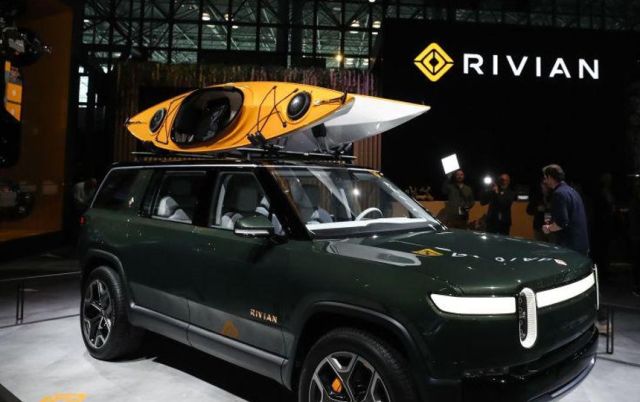Rivian has projected a decline in electric vehicle (EV) deliveries for 2025, despite aiming to achieve a modest gross profit by reducing raw material and supply chain costs.
The company, along with other EV makers, is facing increasing challenges as demand softens, with buyers gravitating toward more affordable gasoline-powered vehicles in an uncertain economic and political environment.
The policies of the Donald Trump administration and the possibility of new tariffs are adding to concerns. Additionally, the potential loss of tax credits, which have played a crucial role in supporting EV demand, may further hinder sales.
Rivian is bracing for higher costs resulting from Donald Trump’s proposed tariffs on Mexico and Canada, which could significantly impact its supply chain, Reuters news report said.
Rivian CEO RJ Scaringe acknowledged the risk of rising costs due to these tariffs, noting that Rivian has a supply chain presence in both countries, meaning that any significant levies would inevitably lead to higher expenses. High level of uncertainty in the EV market could influence consumer behavior and ultimately affect the company’s revenue, RJ Scaringe said.
The EV company revealed that it anticipates delivering between 46,000 and 51,000 vehicles in 2025. This would mark a decline from the 51,579 vehicles Rivian delivered last year.
Capex
Rivian is targeting an annual capital expenditure of $1.6 billion – $1.7 billion in 2025.
Capital expenditures for the fourth quarter of 2024 were $327 million ($298 million) and
$1.141 billion ($1.026 billion) in 2024. Rivian said spend was higher due to the expansion of its manufacturing facility in Normal.
Looking ahead, Rivian is planning a month-long production halt in the second half of 2025 as it prepares to launch its new R2 model.
Rivian R2 is expected to compete directly with Tesla’s Model Y. The company aims to begin deliveries of the R2 early next year, positioning itself in a competitive segment of the EV market.
However, Rivian is navigating a challenging landscape, as even Tesla, the industry leader led by Elon Musk, reported its first annual sales decline in 2024. The difficulties are not limited to passenger EVs, as electric big rig manufacturer Nikola recently filed for Chapter 11 bankruptcy protection.
Revenue
Rivian posted $1.73 billion in revenue in Q4. The company’s software and services segment has been a bright spot, generating $214 million in fourth-quarter revenue, which is double what it earned in the same period a year earlier.
Total automotive revenues for the fourth quarter of 2024 were $1.52 billion, primarily driven by the delivery of 14,183 vehicles. During the year ended December 31, 2024, total automotive revenues were $4,486 million, supported by vehicle deliveries of 51,579.
Additionally, Rivian expects to recognize approximately $2 billion in revenue over the next four years from its joint venture with Volkswagen Group. This partnership, which was formalized last year, focuses on the development of software and electrical architecture, with Volkswagen committing to a $5.8 billion investment in Rivian as part of the agreement.
Rivian has reported its first-ever gross profit of $170 million in the fourth quarter, a significant improvement from the $606 million loss recorded a year earlier. The turnaround can be attributed to cost-cutting measures, including the redesign of its R1 platform, factory upgrades, and renegotiations with suppliers.
Baburajan Kizhakedath

